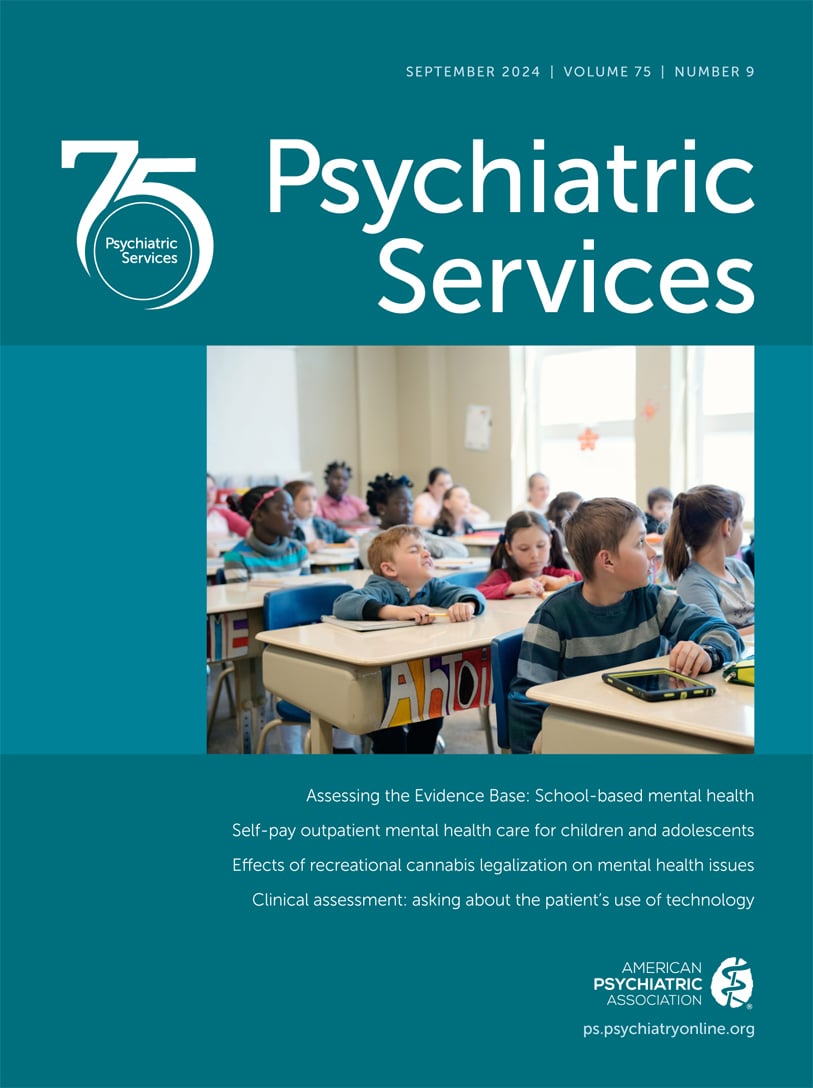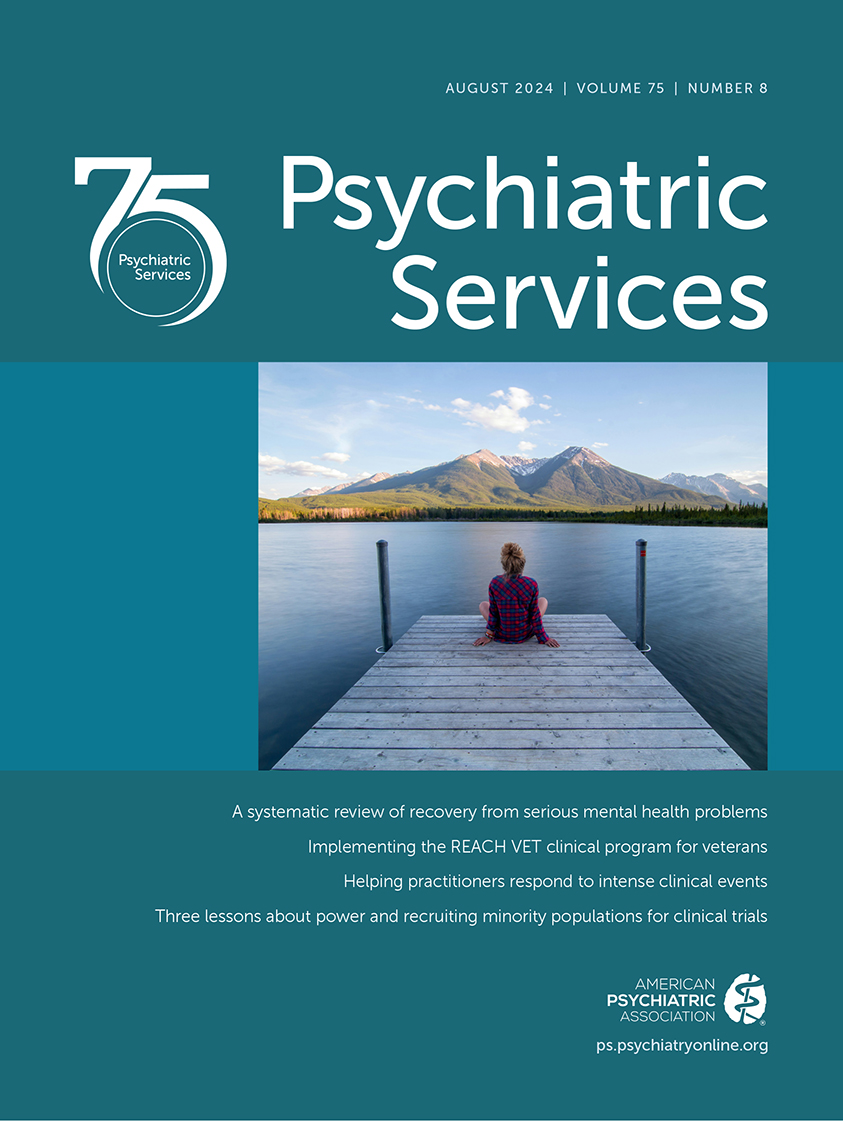Psychiatric Services
- Volume 56
- Number 2
- February 2005
Taking Issue
Departments
Columns
Other Articles
Publication date: 01 February 2005
Pages157–163OBJECTIVE: This study sought to determine the degree to which Medicaid eligibility categories modify disparities between black and white youths in the prevalence of psychotropic medication. METHODS: Computerized claims for 189,486 youths aged two to 19 ...
https://doi.org/10.1176/appi.ps.56.2.157Publication date: 01 February 2005
Pages164–171OBJECTIVE: The objective of this study was to examine the relationship between use of psychiatric services and alcohol and drug treatment outcomes five years after such treatment. It was anticipated that receipt of psychiatric services would predict long-...
https://doi.org/10.1176/appi.ps.56.2.164Publication date: 01 February 2005
Pages172–178OBJECTIVE: The objective of this study was to examine the reasons for the most recent loss of housing and for continued homelessness as perceived by homeless persons with mental illness. METHODS: A total of 2,974 currently homeless participants in the ...
https://doi.org/10.1176/appi.ps.56.2.172Publication date: 01 February 2005
Pages179–185OBJECTIVE: This study assessed involvement with the criminal justice system among new clients of community mental health centers and self-help agencies in order to determine the characteristics and service needs of this population. Such information has ...
https://doi.org/10.1176/appi.ps.56.2.179Publication date: 01 February 2005
Pages186–192OBJECTIVES: This study examined the characteristics of children and adolescents who were restrained during brief inpatient psychiatric treatment and identified whether restraint use was related to the characteristics of the youths or to the setting—time ...
https://doi.org/10.1176/appi.ps.56.2.186Publication date: 01 February 2005
Pages193–197OBJECTIVE: This study examined the effectiveness of an intensive version of dialectical behavior therapy for patients in an outpatient setting who met criteria for borderline personality disorder and who were in crisis. METHODS: Over the two-year study ...
https://doi.org/10.1176/appi.ps.56.2.193Publication date: 01 February 2005
Pages198–201OBJECTIVES: This study examined outcomes during a one-year follow-up for persons who were discharged from a locked intermediate care facility in an urban area in California. The purpose of this study was to determine the extent to which persons with ...
https://doi.org/10.1176/appi.ps.56.2.198Publication date: 01 February 2005
Pages202–205OBJECTIVE: Muslims are one of the most rapidly growing minority groups in the United States and have experienced increased stress since September 11, 2001. The purpose of this study was to elucidate the roles of imams, Islamic clergy, in meeting the ...
https://doi.org/10.1176/appi.ps.56.2.202Correction
Brief Report
Publication date: 01 February 2005
Pages206–208This study surveyed attitudes toward mental health services and barriers to providing these services within the agencies of QueensCare Health and Faith Partnership, a network of faith-based organizations, and parish nurses who provided health care in a ...
https://doi.org/10.1176/appi.ps.56.2.206Publication date: 01 February 2005
Pages209–211The objective of this study was to describe the rehabilitation goals of 165 consumers with serious mental illness who were living in the community and to assess the level of concordance between the consumers' perceived importance of their goals and the ...
https://doi.org/10.1176/appi.ps.56.2.209Publication date: 01 February 2005
Pages212–215This study examined 184 African-American outpatients in a mental health clinic in the inner city to define the rate of occurrence of traumatic experience and posttraumatic stress disorder (PTSD). This population experienced a high rate of severe trauma. ...
https://doi.org/10.1176/appi.ps.56.2.212Publication date: 01 February 2005
Pages216–218The purpose of this study was to identify the relationships between self-cutting, sexual abuse, and psychological variables in predicting infrequent condom use among 293 adolescents in intensive psychiatric treatment. Logistic regression analyses ...
https://doi.org/10.1176/appi.ps.56.2.216Letters
Book Reviews
News & Notes
Past Issues
View Issues Archive
Vol. 75 | No. 11

Vol. 75 | No. 10

Vol. 75 | No. 9
